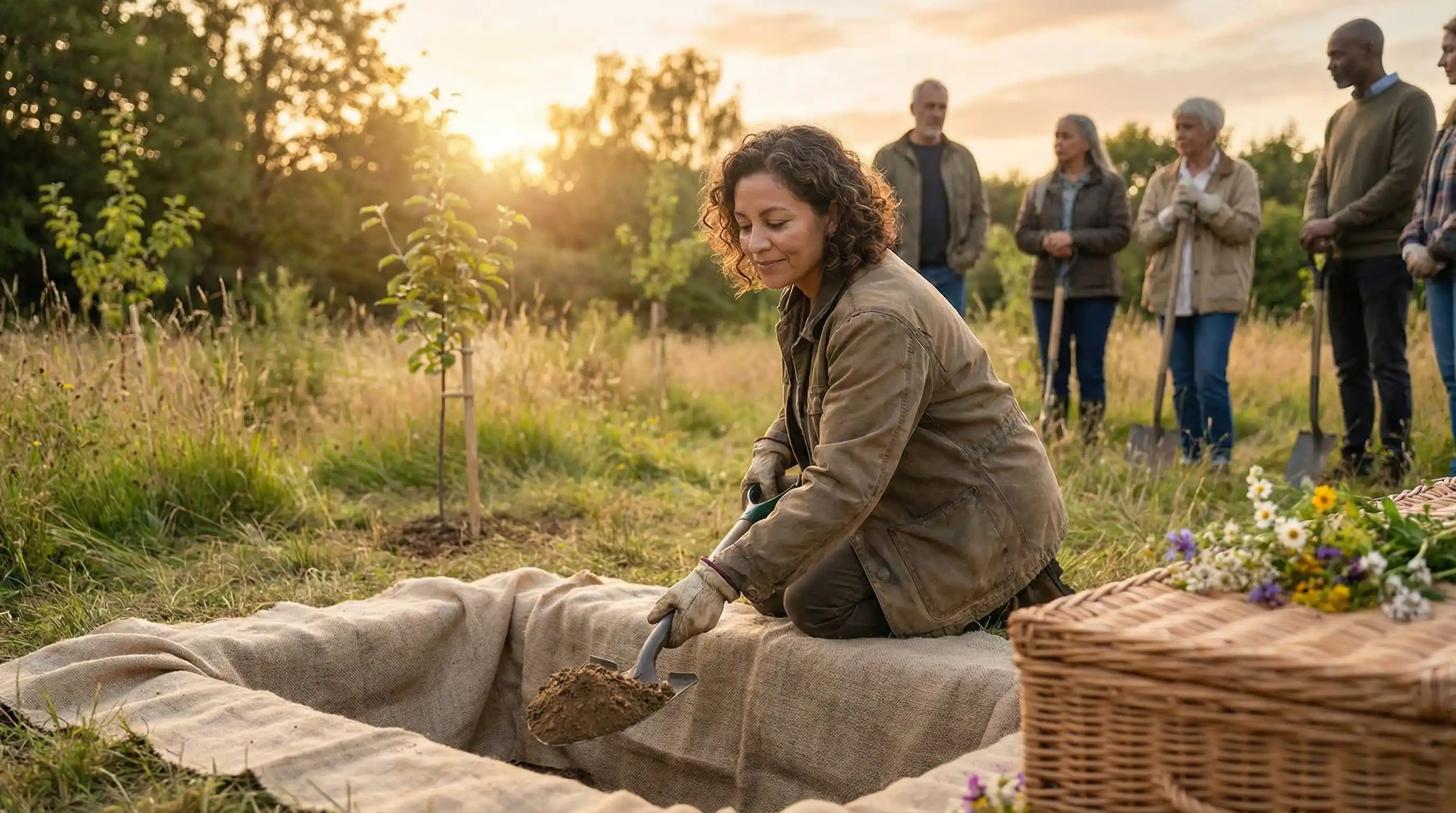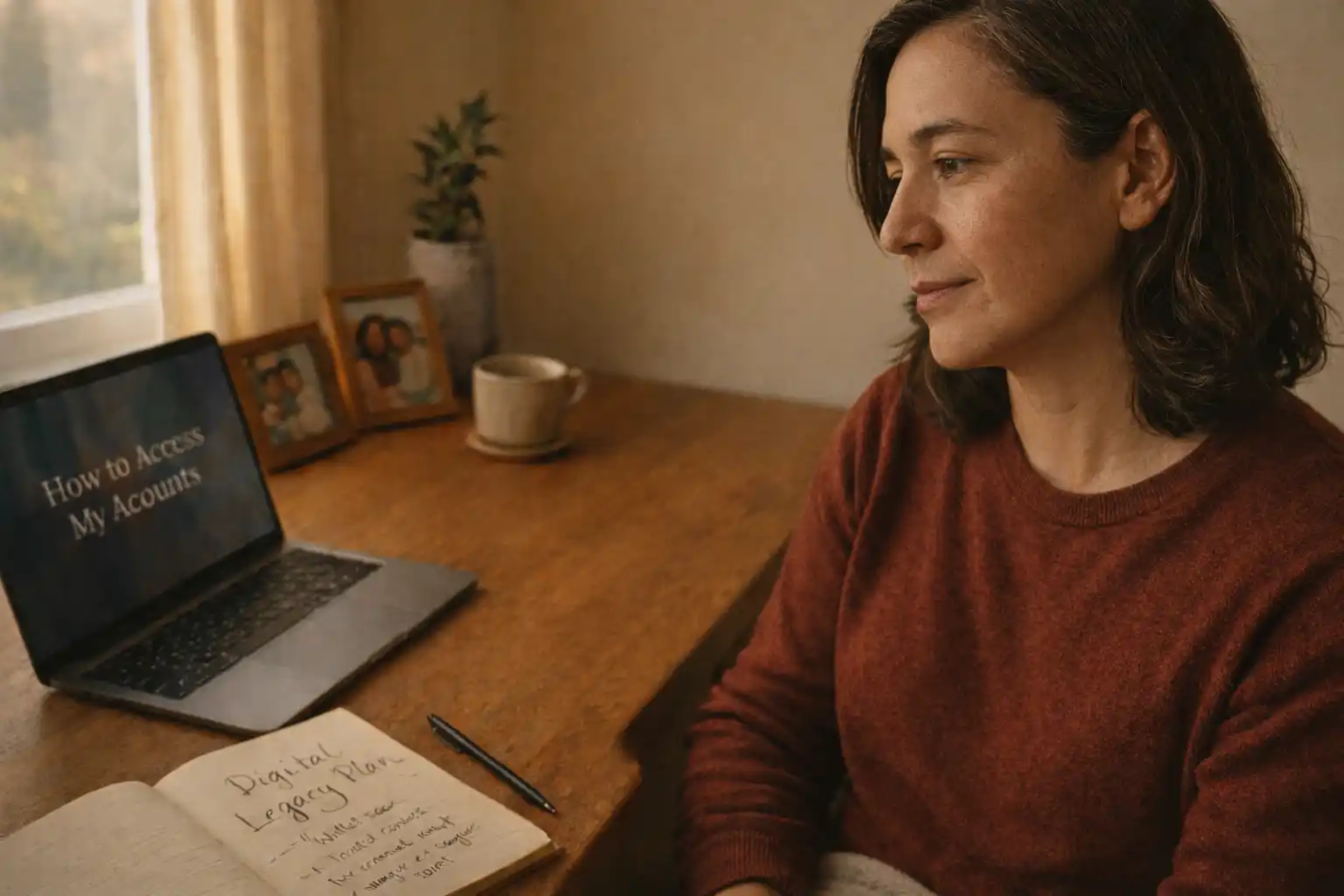What If Dying Could Be Less Overwhelming? A Conversation on Death, Ai, and Human Support
Talking about death isn't easy. Even when it's necessary, it can feel like a heavy, uncharted space, especially when you're navigating it for someone you love, or quietly preparing for your own end-of-life journey. That’s why we need conversations that hold space for uncertainty. That meet us with empathy. That make the complex feel a little less daunting.

About This Blog
Talking about death isn't easy.
Even when it's necessary, it can feel like a heavy, uncharted space, especially when you're navigating it for someone you love, or quietly preparing for your own end-of-life journey.
That’s why we need conversations that hold space for uncertainty. That meet us with empathy. That make the complex feel a little less daunting.
In a recent episode of Death and Dying in the Digital Age, ENDevo founder Niki Weiss spoke with Symon Braun Freck, a death doula, thanatologist, and founder of Ai Death Doula. The two explored how technology can actually soften some of the hardest parts of dying, and more importantly, how it can make space for choice.
What Is Thanatechnology and Why Does It Matter?
Let’s start with the term.
Thanatechnology is the intersection of death (from the Greek root “thanatos”) and innovation. It’s where end-of-life care, legacy planning, and digital tools come together.
That might sound futuristic, but it’s already happening.
Symon’s work with Ai Death Doula aims to create a compassionate, accessible digital space where people can explore questions about dying, grief, burial options, legal planning, and more without needing to know exactly what to ask or who to ask it to.
In her words: “We’re not replacing humans. We’re supplementing them—with tools that speak gently and inform clearly.”
Why We Need Gentle Tech at the End of Life
The idea of using Ai at the end of life might sound jarring at first. Isn’t this the most human experience of all?
But Symon’s perspective offers a helpful reframe: Ai, when designed well, isn’t cold. It’s a bridge.
It helps when you don’t know who to call.
When your mind is clouded by grief.
When you're scared to ask a family member a question—or don’t know what to ask at all.
Ai Death Doula’s digital agent, named Mara (a nod to the Latin word for “death”), is built to deliver information with calm, kind clarity. Whether you’re trying to understand cremation vs. aquamation, or wondering what to do with your loved one’s digital accounts, Mara can guide you through options without judgment.
It’s not about offering “the right way” to die.
It’s about helping people find their own.
Death Literacy: The Key We Didn't Know We Needed
A big takeaway from this conversation?
Most of us don’t even know the vocabulary of dying.
Terms like “green burial,” “terramation,” or even “advance directive” can feel like a foreign language if you’re encountering them for the first time under stress. Symon points out that death literacy (the knowledge and comfort needed to navigate end-of-life choices) is shockingly low across most of society.
Her app doesn’t just answer questions. It anticipates them. It helps people explore, gently, what users didn’t know they needed to know.
For example:
Can I have a funeral in my backyard?
What happens to my online accounts after I die?
Is it okay if I want a celebration instead of a service?
Mara isn’t there to dictate. She’s there to support. And that’s what makes the technology feel so refreshingly human.
The Emotional Edge: Is Talking to Ai About Death Too Strange?
Some people might wonder: isn’t it eerie to interact with a machine about something so intimate?
Symon invites us to look at the broader picture.
Cultures across the world engage with the dead in deeply present ways. From altars in the home to annual rituals, death is not something hidden. It’s integrated.
Ai might feel new, but saving voicemails, holding on to old text messages, or keeping photos on your devices? We’ve already been blending the digital and the sacred for years.
What matters most is how we engage with these tools. Do they help us grieve? Do they help us plan? Do they make us feel more connected, not less?
There’s No One Way to Die, And That’s the Point
One of the most powerful things Symon said in the conversation was this:
“You should die the way you want to.”
That might sound simple, but in practice, it’s revolutionary.
Maybe you want a joyful backyard gathering.
Maybe you want something quiet and traditional.
Maybe you want to be composted into the soil (yes, that’s possible).
Maybe you don’t know yet… but you want the space to think about it.
Ai Death Doula is designed to make space for all of those possibilities. It's not just an app, it's a tool for autonomy. For peace of mind. For starting a hard conversation with less fear.
One Small Step: Start the Conversation
So, where can you begin?
Not with a lawyer.
Not with a long to-do list.
Just with a question.
What kind of end-of-life experience do you not want?
What do you want your loved ones to remember most?
What song would you want playing as people gathered to honor you?
Even just thinking about these simple things can open doors.
And if you’re not ready to talk to a person yet, that’s okay too. Tools like Ai Death Doula exist to meet you exactly where you are with information, compassion, and no judgment.
Because at the end of the day, death isn’t just about endings.
It’s about agency. About care. About being seen.
🌀 You can learn more about Symon Braun Freck and the Ai Death Doula app at www.aideathdoula.com.
🎥 Watch the full episode of the Death and Dying in the Digital Age Podcast on YouTube for a deeper dive into tech, death, and what it means to leave a legacy on your terms.
Related Blog
Duis mi velit, auctor vitae leo a, luctus congue dolor. Nullam at velit quis tortor malesuada ultrices vitae vitae lacus. Curabitur tortor purus, tempor in dignissim eget, convallis in lorem.





Comments